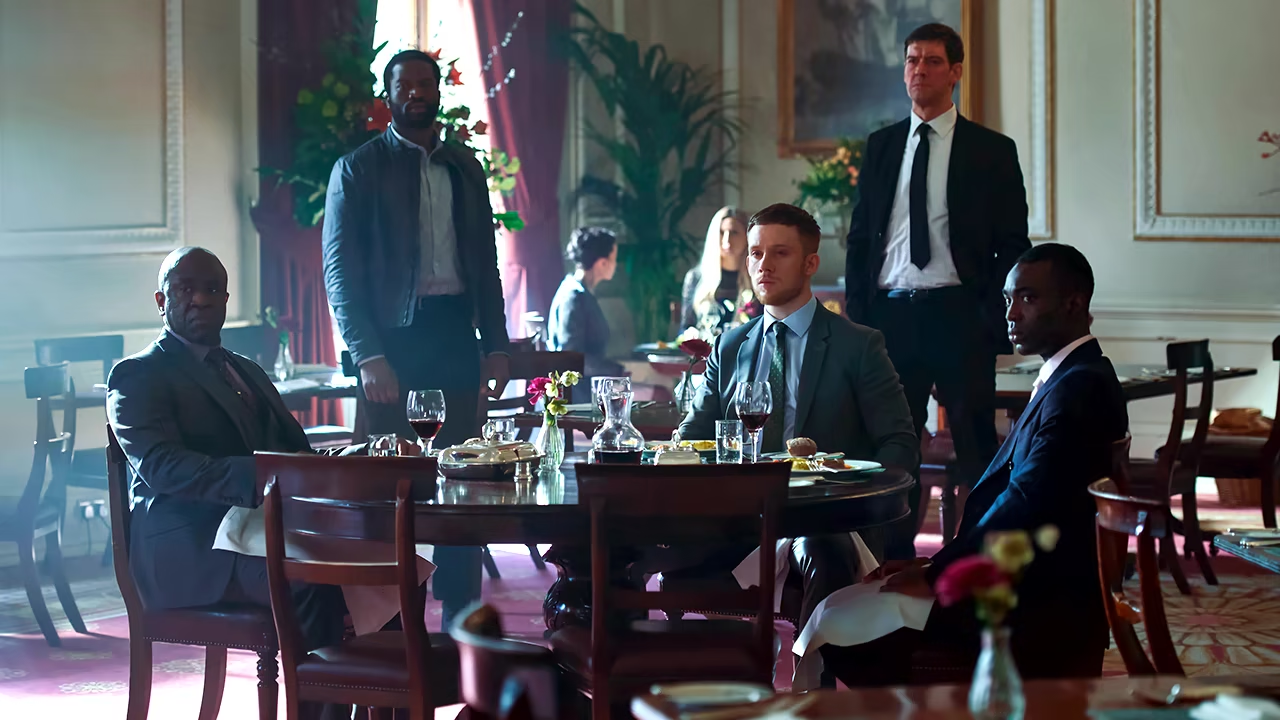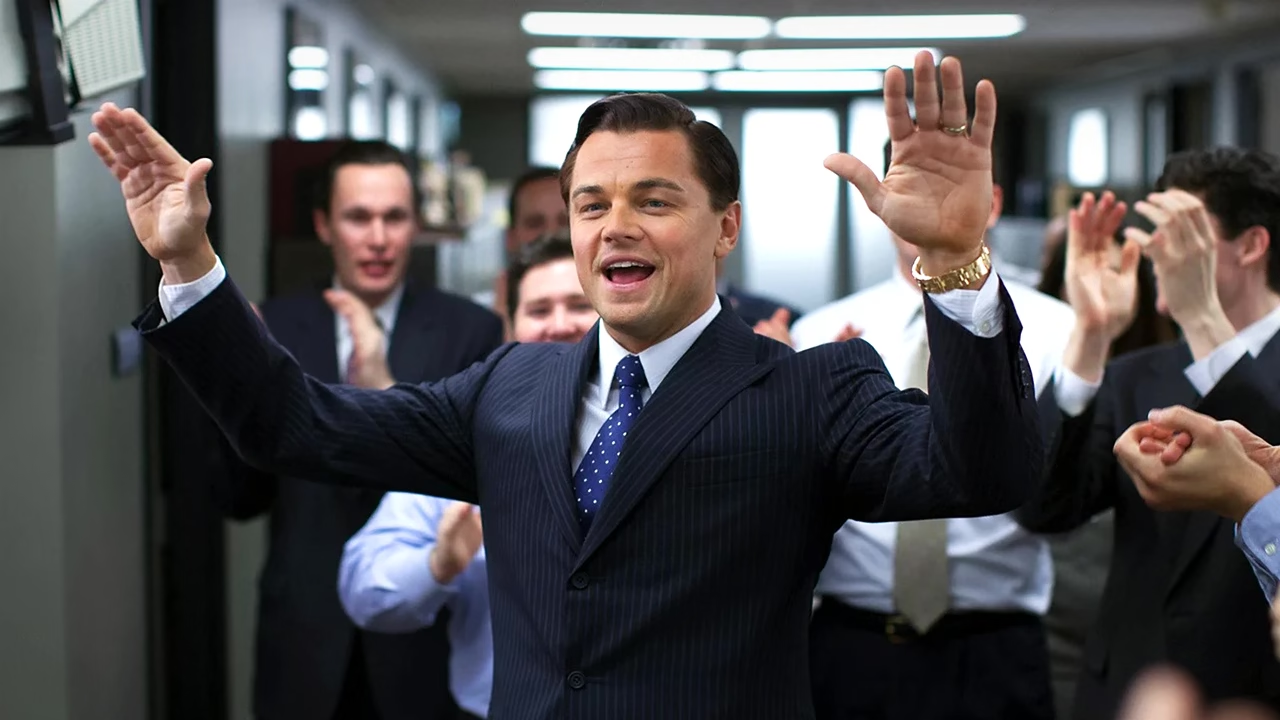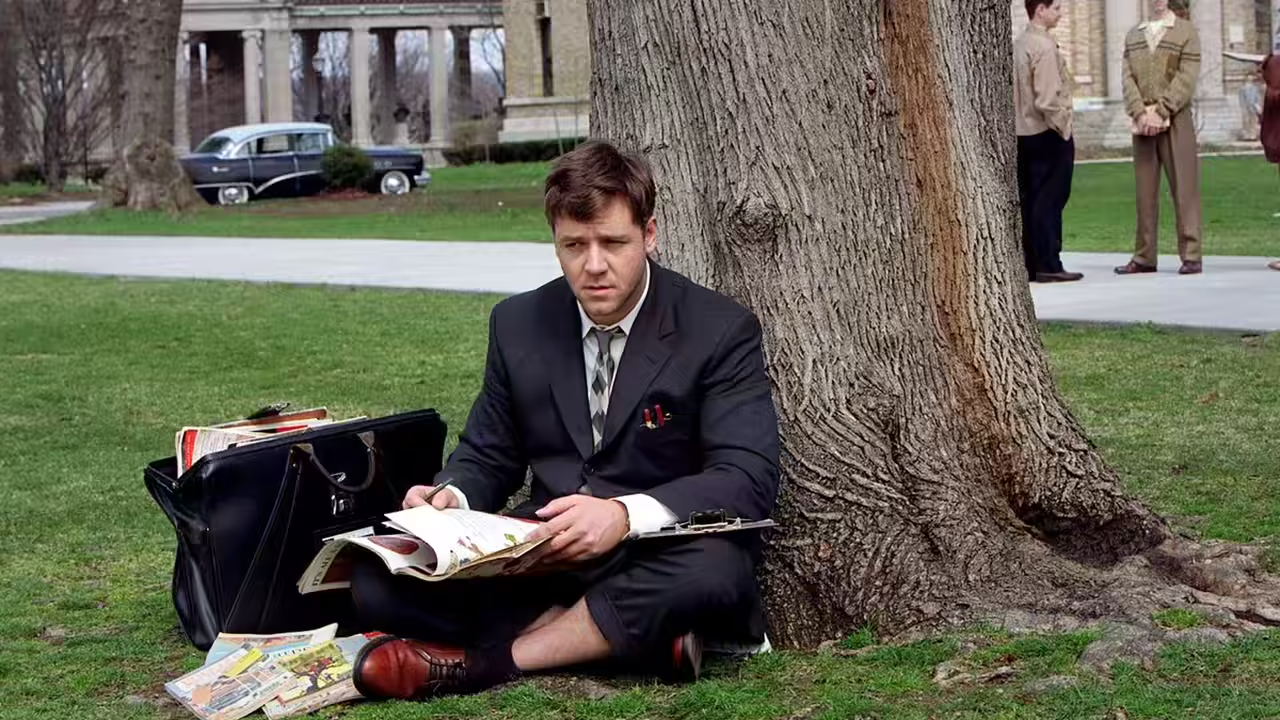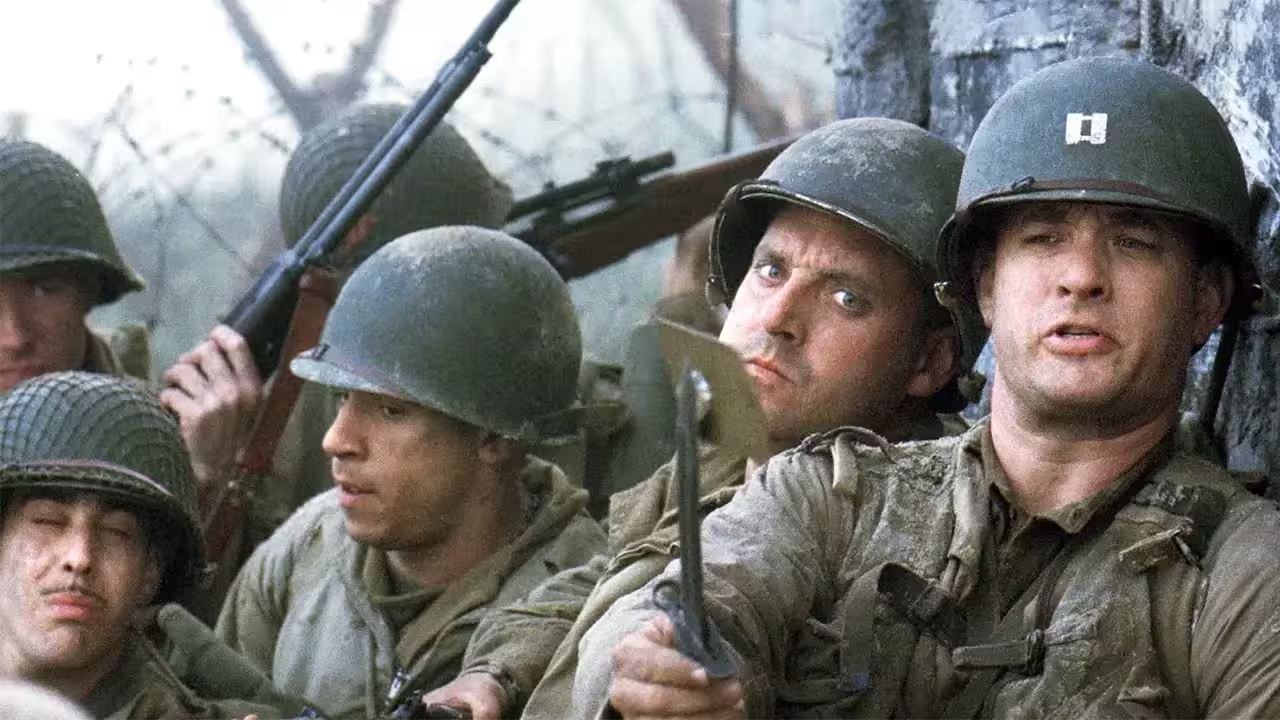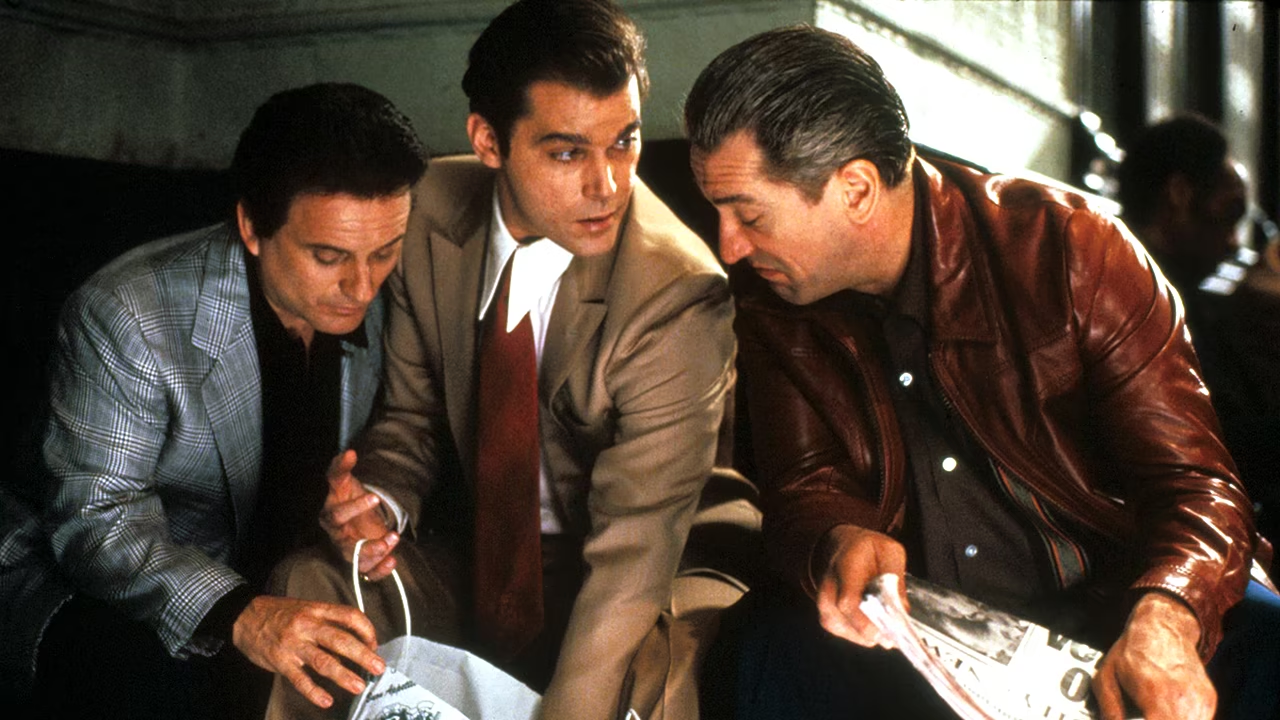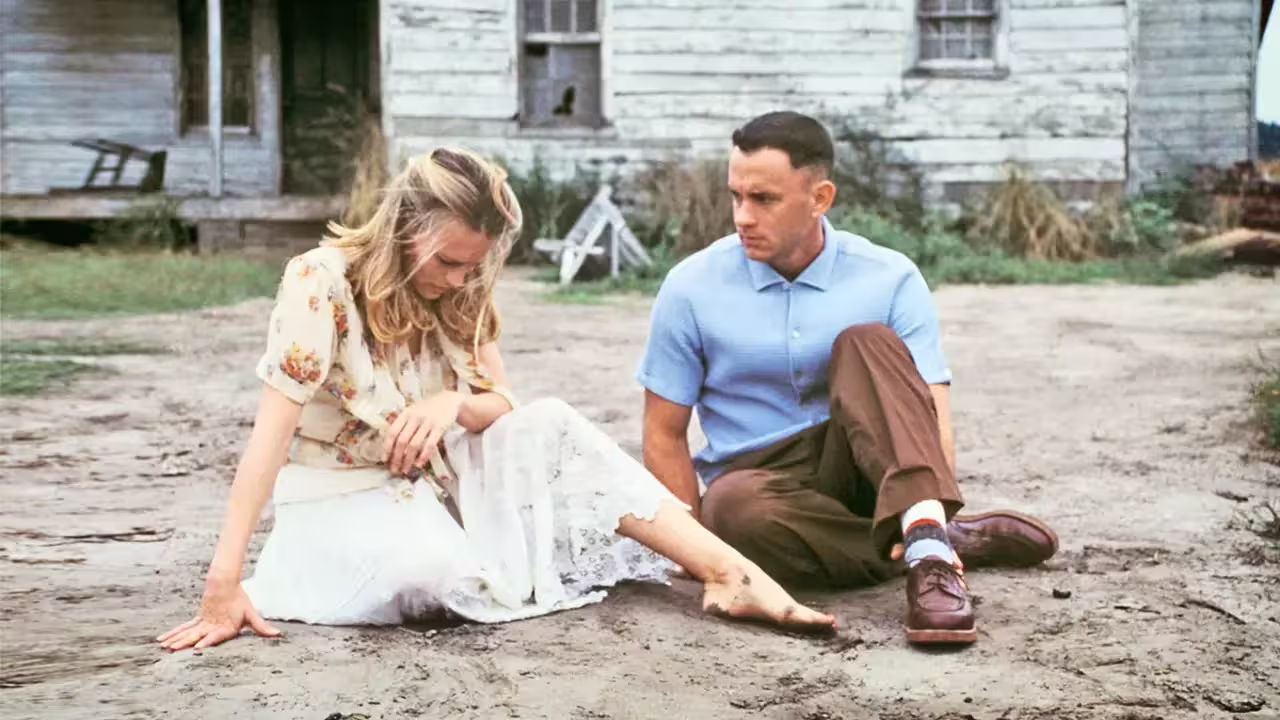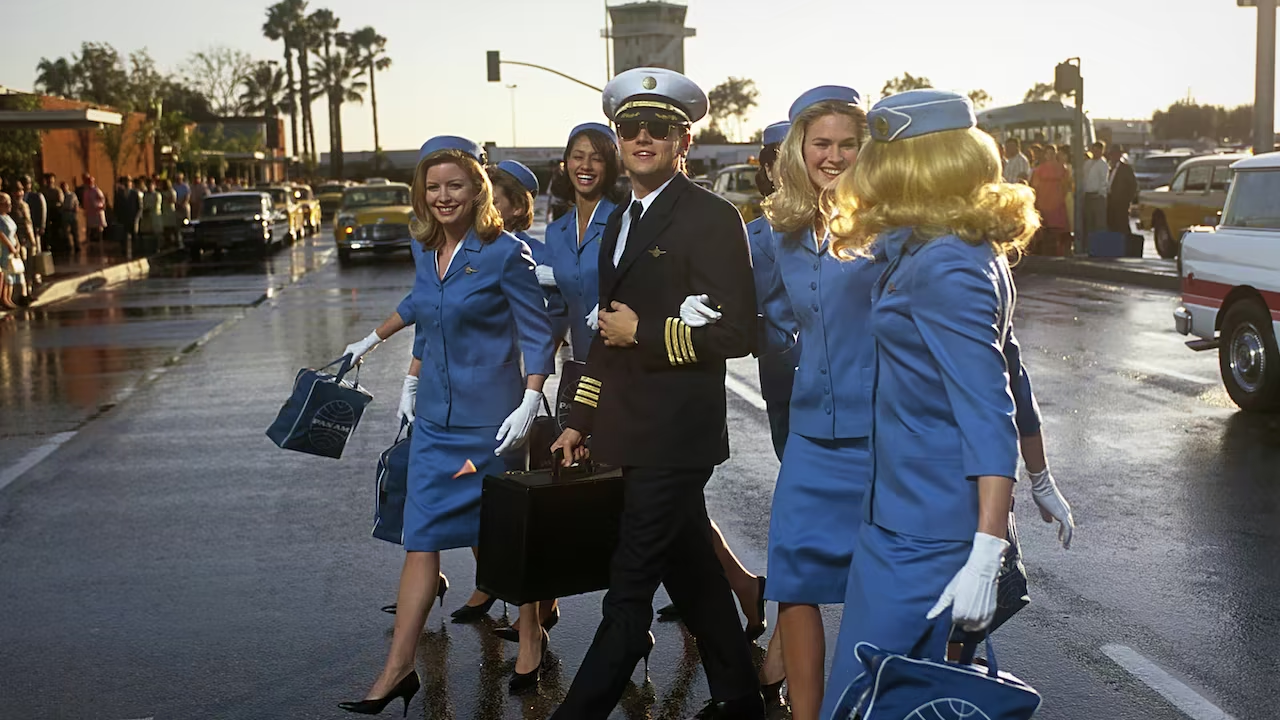
Steven Spielberg’s Catch Me If You Can (2002) transforms the real-life saga of Frank William Abagnale Jr. into a compelling study of deception as both criminal enterprise and psychological survival mechanism. The film stars Leonardo DiCaprio as Abagnale, whose extraordinary talent for reinvention enabled him to cash millions in forged checks while evading the determined and increasingly frustrated FBI agent Carl Hanratty (Tom Hanks) in a globe-spanning cat-and-mouse chase spanning the 1960s. What elevates the narrative beyond a mere crime thriller is its exploration of how identity becomes fluid when fundamental relationships crumble.
Through Spielberg’s masterful direction, the film reveals how Abagnale’s elaborate cons—donning uniforms and assuming professional identities—weren’t simply schemes for financial gain but desperate attempts to rebuild a sense of belonging after witnessing his family fall apart. Each fabricated persona represents both escape and aspiration, as Abagnale crafts versions of himself that command the respect and stability his broken reality couldn’t provide. This psychological complexity continues to resonate with audiences, even as investigative journalists have recently challenged significant portions of Abagnale’s self-reported autobiography, suggesting his greatest con may have been the mythologizing of his own criminal history.
Origins of a Fraudster
The story begins with Frank William Abagnale Jr., a bright and charismatic teenager growing up in comfort as the only son of a successful businessman, Frank Abagnale Sr. (Christopher Walken). However, their seemingly stable life begins to unravel when Frank Sr.’s business faces financial collapse. In a bid to maintain appearances and secure a loan, Frank Sr. takes his son to the bank—but not before stopping at a clothing store, where he persuades the owner to lend Frank a chauffeur’s uniform. Dressed as his father’s driver, Frank plays a small but crucial part in the charade.
Despite their effort to appear affluent, the bank refuses the loan, citing Frank Sr.’s unresolved tax issues and mounting debts. Unable to get a loan from the bank, Frank’s father was forced to sell their car and their luxurious home. Now, Frank’s family had to move into a tiny rental house. On Frank’s 16th birthday, his father could only offer him a checkbook with 25 blank checks.
The next day, when Frank transferred to a public high school, he immediately started pretending to be a substitute teacher. The funny thing was, his classmates completely bought it, and he even held a parent-teacher conference and planned a class field trip. As a result, Frank’s parents were called to the school the following day. The principal met with Frank’s parents, but his father’s reaction was unexpected, he actually seemed proud and didn’t see it as a serious offense. His father thought Frank was clever for managing to fool his classmates.
Frank’s world was further upended when he discovered his mother Paula (Nathalie Baye) was having an affair with one of his father’s friends, Jack Barnes (James Brolin). His mother tried to bribe him to keep quiet about it, but Frank refused the money. Not long after, Frank’s parents decided to get divorced. This meant Frank had to choose whether to live with his father or his mother. Frank was devastated and didn’t want his family to break apart, so he ran away from home. He rushed to the train station and hopped on a train, armed with the checks his father had given him just days before.
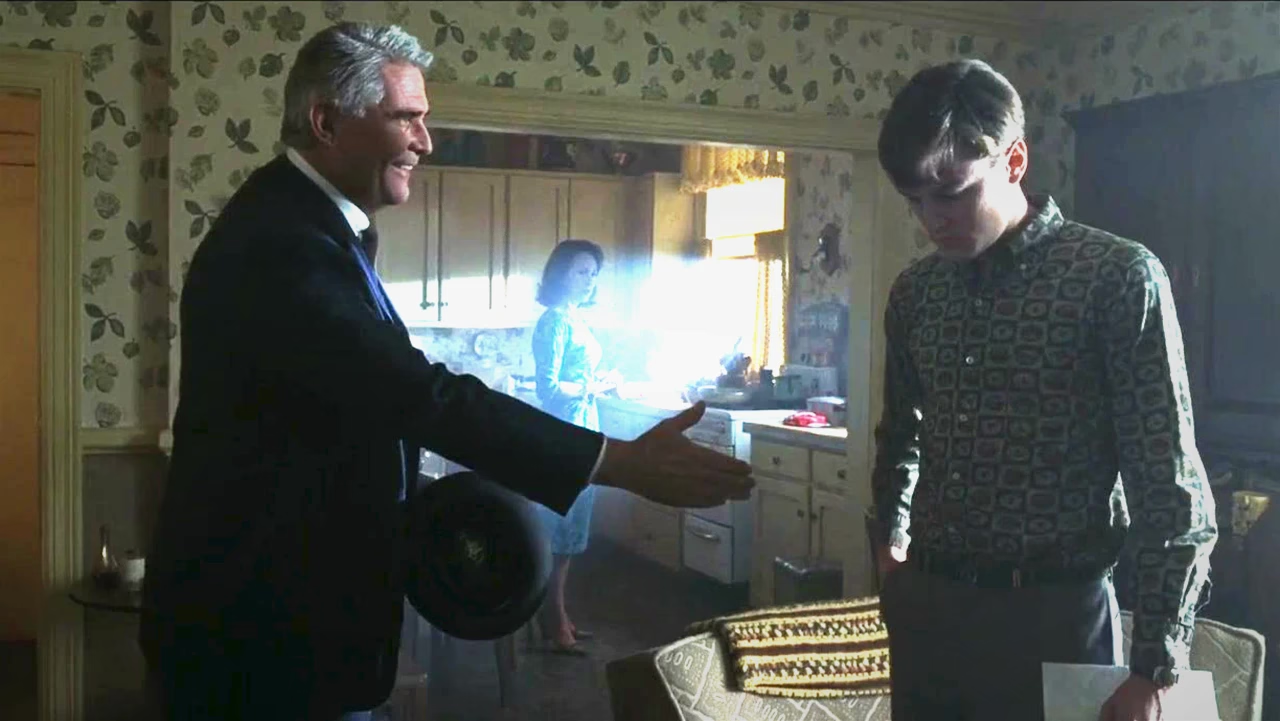
When he tried to pay for his ticket, Frank was caught using a bad check and was kicked off the train. This incident at the station made Frank realize the problem with his checks. He changed his birth date to make himself appear 10 years older. Now, Frank’s checks could be cashed at the bank, and he easily got his hands on a lot of money. However, not all banks would cash his checks because Frank looked too young compared to the birth date on them.
Taking Flight Through Deception
As Frank was leaving one bank, he noticed how pilots were treated with such respect, which sparked the idea to pretend to be one. The next day, Frank hurried to an airline company and posed as a high school student conducting interviews for a school paper. Frank told the airline staff he was interested in becoming a pilot and was researching the profession. He managed to gather detailed information about the world of aviation. Armed with information gathered from airline staff, Frank acquired a pilot’s uniform. This significantly boosted his confidence and credibility, making it easier to pass his fraudulent checks at various banks.
From there, Frank became increasingly creative, even making his own checks and sticking airline logos from toy airplanes onto them. Posing as a pilot, Frank honed his skills in smooth-talking bank tellers, distracting them from scrutinizing his counterfeit checks. This pilot persona was highly effective, contributing significantly to the approximately USD 2.5 million he would eventually defraud from banks throughout his criminal career.
One day, while cashing a check at an airport, Frank was mistaken for a pilot about to depart for Miami. To avoid getting caught, Frank played along when questioned. And so it was that Frank, posing as a pilot, flew for free for the first time, sitting in the cockpit with other pilots heading to Miami. From that point on, Frank fully committed to his pilot deception. He kept his father updated on his new “career” and began charming a string of young women.
Frank believed his good fortune would never end. But while he reveled in his new lifestyle, someone had already begun tracking him down. Hoping to reunite his fractured family, Frank visited his father and proudly displayed his wealth, convinced it might help bring his parents back together. However, his hopes were quickly dashed. Their separation wasn’t just about financial troubles—their relationship had deeper, unresolved issues that no amount of money could fix.
For months, Frank carried out these scams without a hitch, even though many banks knew the checks were fake and had alerted the authorities. But Frank, always a step ahead with his cunning, managed to evade the police once more. His exploits eventually caught the attention of FBI agent Carl Hanratty (Tom Hanks), who became determined to bring him in.
Eventually, Carl and his team tracked Frank to an apartment building. As Carl was about to arrest Frank in his room, Frank calmly claimed to be a Secret Service agent named Barry Allen, also on the check fraud case. Carl was initially suspicious, but Frank was convincing, especially when he mentioned his partner waiting in the car with a witness—who, in reality, was just his neighbor and her uncle heading to the hospital. Frank successfully slipped away, and only after he was gone did Carl realize he’d been duped.
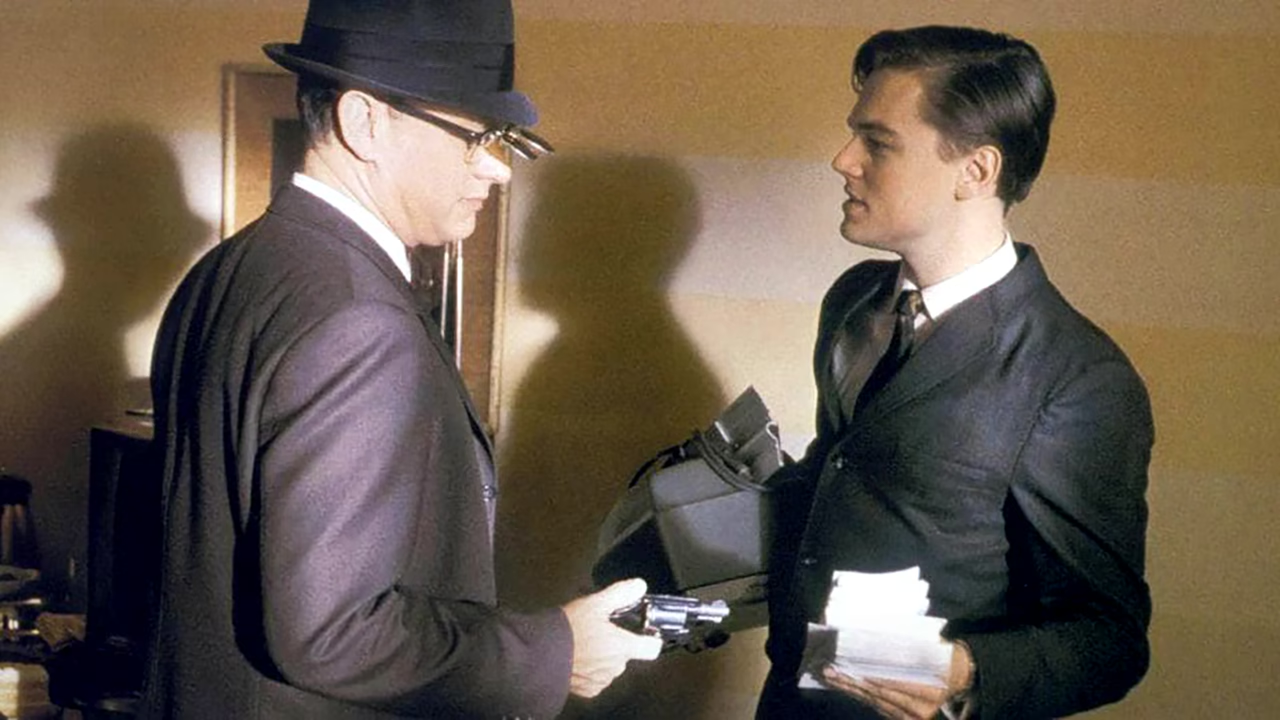
A few days later, Frank brazenly returned to the airline office, again pretending to be a high school student wanting to interview pilots about their profession. The airline staff mentioned a con artist posing as one of their pilots, who was committing check fraud and was now on the run, nicknamed “the James Bond of the skies.” Rather than feeling frightened, Frank felt proud and pleased by the moniker. A big fan of James Bond films, Frank immediately began emulating Bond’s elegant style, even buying the same car James Bond used in his films.
Explore More:
On Christmas Eve, Frank called Carl, who was still poring over evidence from the counterfeit checks, to apologize for the incident at the apartment days earlier. But Carl was in no mood for apologies, he was determined to catch Frank. Annoyed, Frank wished him a Merry Christmas before hanging up. That afternoon, while Carl was still trying to find any information on Barry Allen, a young cafe server clued him in: Barry Allen was The Flash, a comic book superhero. With this, Carl realized Frank was just a kid, likely a comic book fan.
The next day, Carl began methodically visiting the homes of parents whose children had run away. His search eventually brought him to the new home of Frank’s mother, Paula, now living with Jack Barnes. During their conversation, Carl asked several questions about her son and requested a photograph. When Paula showed him the picture, Carl was stunned. He had finally uncovered Frank’s true identity. The realization hit hard—he, a seasoned FBI agent, had been consistently outwitted by a teenager still in high school.
Shifting Identities Under Pursuit
Meanwhile, Frank sensed that Carl was getting closer, so he came up with a bold plan to stay ahead. He decided to reinvent himself as a doctor. After forging a medical degree and studying medical materials on his own, he aimed to make tracking him even more difficult. He changed his last name and applied to a hospital using his fake credentials. Against all odds, he was hired as a supervising doctor. There, he quickly formed a close bond with Brenda Strong (Amy Adams), a kind and attractive nurse who regularly assisted him with patients.
The next day, Carl met with Frank’s father, hoping to get a lead on Frank’s location. His father refused to cooperate, but Carl managed to spot a letter from Frank revealing his new address. Carl rushed to the location, but he was too late, Frank had already moved on. However, Carl did find a crucial piece of evidence, a fake medical degree bearing Frank’s new alias, Frank Conners.
This discovery, revealing Frank’s new alias as Frank Conners, was a significant break for Carl in his pursuit. At least he now knew the name Frank was using, which would make tracking him easier. Meanwhile, Frank and Brenda’s relationship blossomed, and Frank, deeply in love, decided he wanted to marry her. Brenda, equally smitten, introduced Frank to her parents. It turned out Brenda was the only child of a wealthy family, her father Roger Strong (Martin Sheen) was a respected prosecutor.
Seeing an opportunity, Frank immediately began weaving new lies to win over Brenda’s father. He claimed that he planned to return to the legal world to prove himself a worthy son-in-law. Since he had already boasted about attending law school, he threw himself into studying law. Remarkably, he managed to pass the bar exam and soon secured a position at Roger’s law firm.
Frank later met with his father and eagerly shared his big news. He was planning to marry Brenda, his “country girl,” the following month. He also proudly mentioned his new job as an assistant prosecutor in his future father-in-law’s office. Deep down, Frank still hoped that his success might bring his parents back together. However, his father gently told him the truth, his mother had already remarried.
That night, Frank called Carl, pleading with him to stop the pursuit now that he was getting married and starting a new life with Brenda. Carl, however, explained that the financial devastation Frank had caused was too substantial, the legal process had to run its course. Carl couldn’t help but wonder at Frank’s audacity, questioning how someone with no influential connections could be so bold in his law-breaking.
The night of Frank and Brenda’s engagement party arrived. Carl, timing his move perfectly, showed up to arrest Frank. But Frank, ever elusive, was one step ahead and managed to escape once more. However, in a moment of vulnerability before fleeing, Frank said goodbye to Brenda, confessing everything and asking her to meet him in Miami two days later. Two days later, Frank spotted Brenda arriving at their rendezvous point, only to see she had FBI agents in tow. Feeling utterly betrayed, Frank immediately set his sights on escaping to France, once again planning to use his pilot disguise.
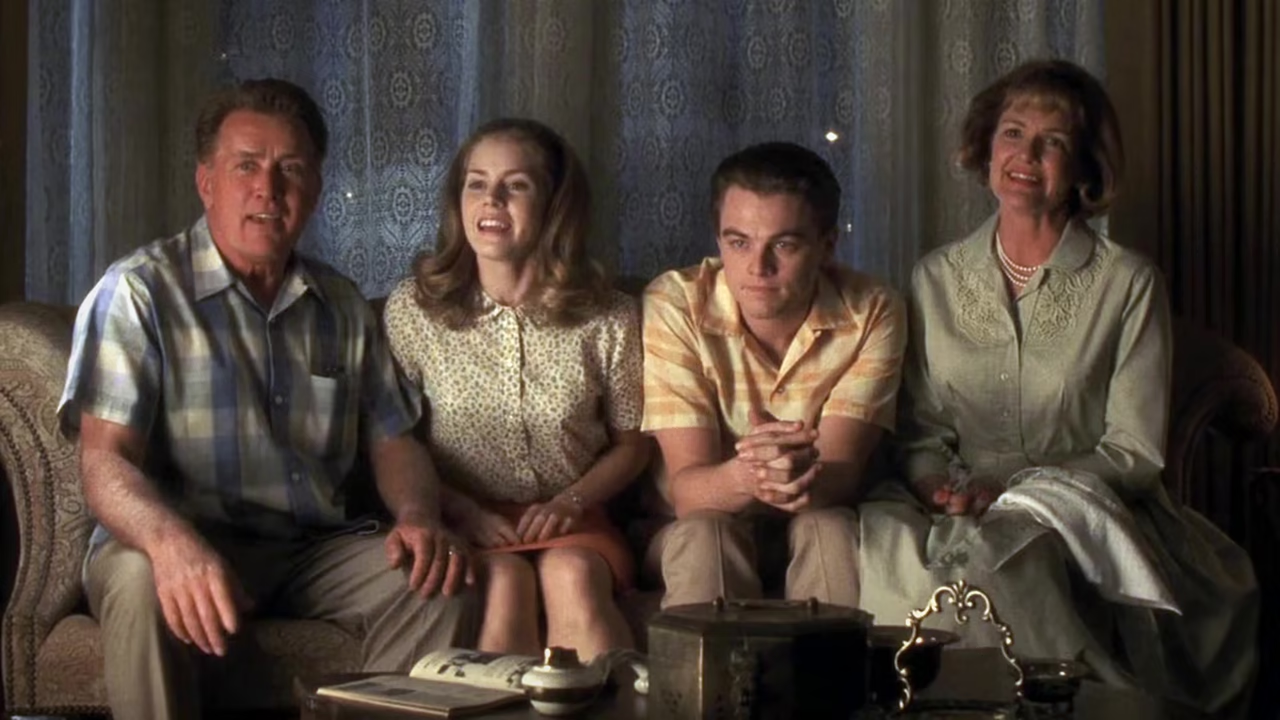
Despite Frank’s escape, Carl, more determined than ever, pressed on with the hunt. Now more determined than ever, Carl was desperate to catch Frank. He meticulously examined the paper stock Frank used for his counterfeit checks, which printing experts identified as being manufactured in only a few countries, including France. Suddenly, Carl remembered Frank’s mother had French ancestry. He felt certain Frank was in France, and his hunch paid off: Frank was indeed there.
Capture and Unlikely Redemption
Carl eventually tracked Frank to his mother’s hometown of Montrichard, France, where Frank was operating a large-scale check printing operation. There, Carl apprehended him, which sparked an ensuing confrontation as he prepared to take him into custody. Surprisingly, a sense of understanding and even a degree of trust began to develop between hunter and prey. Despite their adversarial roles, the seeds of an unlikely friendship were quietly sown.
Just as Carl was preparing to bring Frank back to America, French police stormed the location and arrested Frank themselves. Carl tried to intervene, arguing Frank was his prisoner, but outnumbered, his efforts were futile. As Frank was handcuffed and led to a police car, Carl made him a promise, he would get him back to America. Later, Carl visited Frank in the French prison, finding him looking gravely ill. Concerned, Carl urged the guards to have him medically examined. Frank was taken to the infirmary, but just as he was about to be seen, he made another escape attempt. It was short-lived, however, and he was quickly recaptured.
Long story short, Carl successfully extradited Frank back to America. On the flight home, Frank mentioned wanting to call his father upon arrival, admitting it had been a year since they’d last spoken. Carl then had to deliver the heartbreaking news: Frank’s father had passed away. Devastated, Frank asked to use the restroom. Carl, feeling for him, agreed. Once inside, however, Frank pried open a panel in the airplane’s lavatory and, incredibly, escaped onto the tarmac after landing.
That night, Frank made his way to his mother’s house. Peering through a window, his heart ached as he saw her, apparently happy with her new husband and their young daughter. Realizing he truly had no one left, Frank surrendered without a fight when the police, tipped off by Carl, arrived. He was subsequently sentenced to 12 years in a maximum-security prison. Carl became a regular visitor to Frank in prison. His heart went out to Frank, especially after learning he’d joined the “San Francisco Orphans Group.”
On one such visit, Carl came with a specific purpose. A new wave of sophisticated check fraud was hitting the country. He showed Frank some sample forgeries, and Frank, using his expert eye, quickly identified them as fakes and even pointed out the specific tells. Impressed, Carl went to his superiors and proposed an unorthodox idea that involved releasing Frank into FBI custody under Carl’s supervision so that he could help catch these new fraudsters and provide advice on financial crime cases. The proposal was accepted, and Frank was granted conditional release.
After months working diligently with the FBI, Frank grew restless. The old itch returned, and one Friday, he donned a pilot’s uniform, clearly intending to escape. Carl saw him but, in a surprising move, didn’t try to stop him outright, instead simply telling Frank he expected him back on Monday. To Carl’s relief, and perhaps Frank’s own surprise, Frank did return. It was then Carl finally asked him, out of sheer curiosity, how he’d managed to pass the Louisiana bar exam without ever attending law school. Frank nonchalantly replied he’d studied for two weeks and aced it. This only solidified Carl’s belief that Frank, for all his deceptions, was truly a genius.


